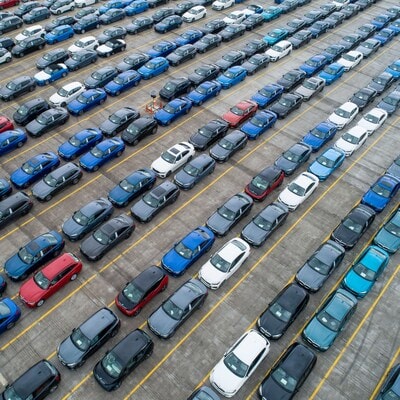As vehicle sales hit brakes, manufacturers seek extended financing | Auto

Auto dealerships are grappling with a 60-day stockpile of four-wheeler inventory, which is imposing a financial burden due to the additional interest costs incurred during the extended holding period
Abhijeet Kumar New Delhi
Passenger vehicle manufacturers have asked auto financiers to extend the credit period for dealers from the current 60 days to 90 days, highlighting an increasing pressure on retail channels due to slowing sales and accumulating stock at car dealerships, The Economic Times reported.
This situation, similar to trends observed in FY19, was discussed by several auto financiers and dealers at the third Annual Finance & Insurance Summit hosted by the Federation of Automobile Dealers Associations (Fada).
Click here to connect with us on WhatsApp
Citing Akhilesh Roy, head of auto loans and inventory funding at HDFC Bank, the business-daily said, “There is significant demand to extend the credit cycle for dealers. We are receiving requests, particularly from major car manufacturers like Maruti Suzuki and Hyundai Motor India, to extend the credit cycle from 60 days to 90 days.”
However, dealers argue that extending the credit period would not be beneficial. Instead, it would increase the financial strain due to higher interest costs. Currently, stock levels in sales channels have risen to 55-60 days, compared to the usual 30 days for this season, the news report said.
In India, automakers follow a ‘cash and carry’ model, where retailers obtain loans from banks and non-banking financial companies to purchase inventory from manufacturers for 45-60 days at interest rates between 7.5 per cent and 9.25 per cent, depending on the dealer’s credit history and overall standing. This duration is referred to as the tranche period, the report added.
Rising car inventory pressure
Last week, Business Standard reported that Fada expressed concerns about increasing four-wheeler inventory levels at dealerships, now at a 60-day stockpile or approximately 550,000 units. This could impose a substantial financial burden on dealerships due to the additional interest cost from the extended holding period.
These 60-day inventory levels are nearing the 2018-19 levels when inventory days had reached 70 days, leading to the closure of around 282 passenger vehicle dealerships. Fada is presently in discussions with the Society of Indian Automobile Manufacturers (SIAM) to address these inventory issues.
However, original equipment manufacturers are urging dealers to extend this period from 60 to 90 days, which would force dealerships to incur an additional month of interest costs, Singhania claimed. This extension allows OEMs to offload more stock onto dealers, worsening the inventory problem.
Decline in passenger vehicles sale in May
In May, retail car sales in India dropped by 1 per cent, mirroring the slowdown in wholesale growth. This decline was attributed to the impact of elections and extreme heat by Fada, which reduced demand and delayed purchase decisions.
Sales growth for two-wheelers slowed to 2.6 per cent in May from 33 per cent in April, as per the Fada, which tracks monthly retail sales from dealers to customers.
Overall retail sales across segments, including two-wheelers and commercial vehicles, grew by 2.6 per cent in May Y-o-Y, compared to a 27 per cent rise in April.
India’s auto industry accounts for 7 per cent of the country’s GDP, according to government data. Auto sales are also a significant indicator of private consumption in the world’s fifth-largest economy.
Dealers nationwide have faced challenges with increasing inventories of slow-selling models, especially small cars, whose prices have outpaced the income growth of their target customers. Consequently, retail sales growth has lagged behind wholesale growth, putting financial strain on dealers.
Fada predicted last month that elections would negatively impact vehicle sales. Additionally, extreme heat conditions have deterred customers from visiting showrooms, resulting in an 18 per cent drop in walk-ins, Fada President Manish Raj Singhania had noted in a statement.



